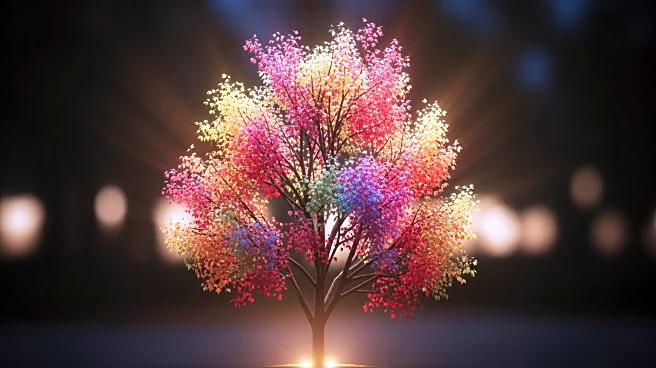What's Happening?
Gen Z is increasingly adopting unconventional dating practices, notably the 'Shrekking' trend, where individuals choose partners perceived as less attractive in hopes of better treatment. This trend reflects a broader shift in Gen Z's dating culture, which includes a preference for older partners and a rejection of traditional dating norms. A 2024 survey by Bumble revealed that 63% of users are comfortable dating outside their age group, indicating a rise in age-gap relationships. Experts suggest that these trends are driven by frustrations with modern dating practices, such as ghosting and ambiguous situationships, and a desire for emotional safety and stability.
Why It's Important?
The shift in Gen Z's dating preferences highlights changing societal values around relationships and attractiveness. By prioritizing emotional safety and stability over conventional desirability, Gen Z is challenging traditional dating norms and expectations. This could lead to broader changes in how relationships are perceived and valued, potentially influencing industries related to dating, such as matchmaking services and dating apps. Additionally, the trend reflects Gen Z's focus on mental health and boundaries, which could impact societal attitudes towards relationships and personal well-being.
What's Next?
As Gen Z continues to redefine dating norms, there may be increased discussions around the implications of these trends on relationship dynamics and societal expectations. Dating apps and services might adapt to cater to these evolving preferences, potentially offering features that emphasize emotional compatibility over physical attractiveness. Furthermore, the trend could spark conversations about the impact of social media and dating apps on relationship values, leading to potential shifts in how these platforms operate.
Beyond the Headlines
The 'Shrekking' trend raises questions about societal standards of beauty and the pressures to conform to conventional attractiveness. It challenges the notion that physical appearance is the primary determinant of relationship success, suggesting a shift towards valuing emotional connection and compatibility. This could lead to broader cultural changes in how beauty and attractiveness are perceived, potentially influencing media representations and societal attitudes towards diversity and inclusivity.








